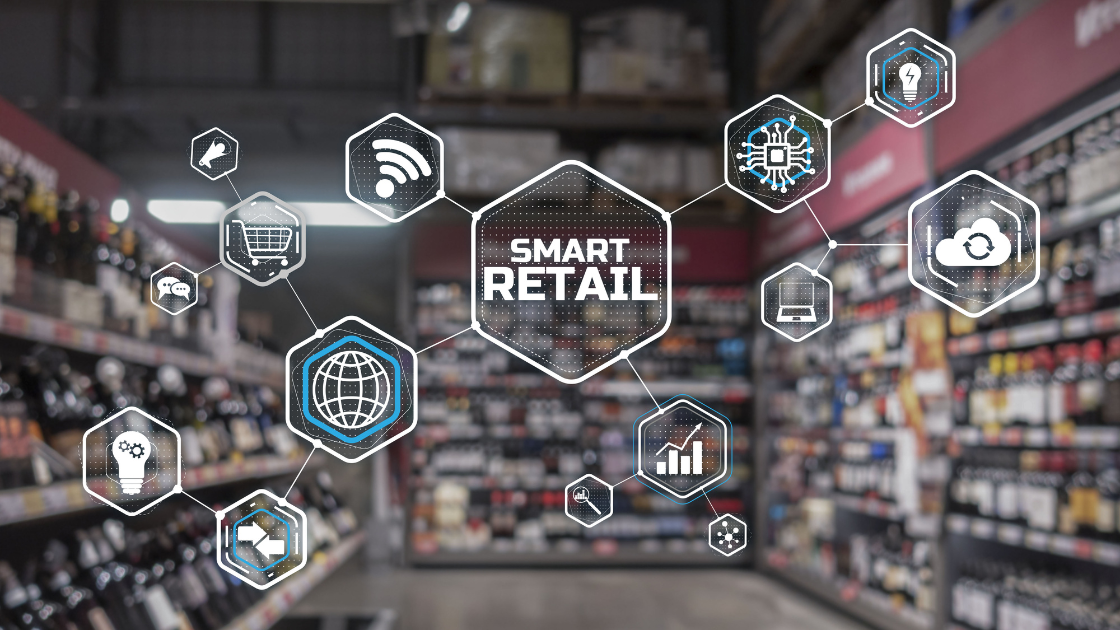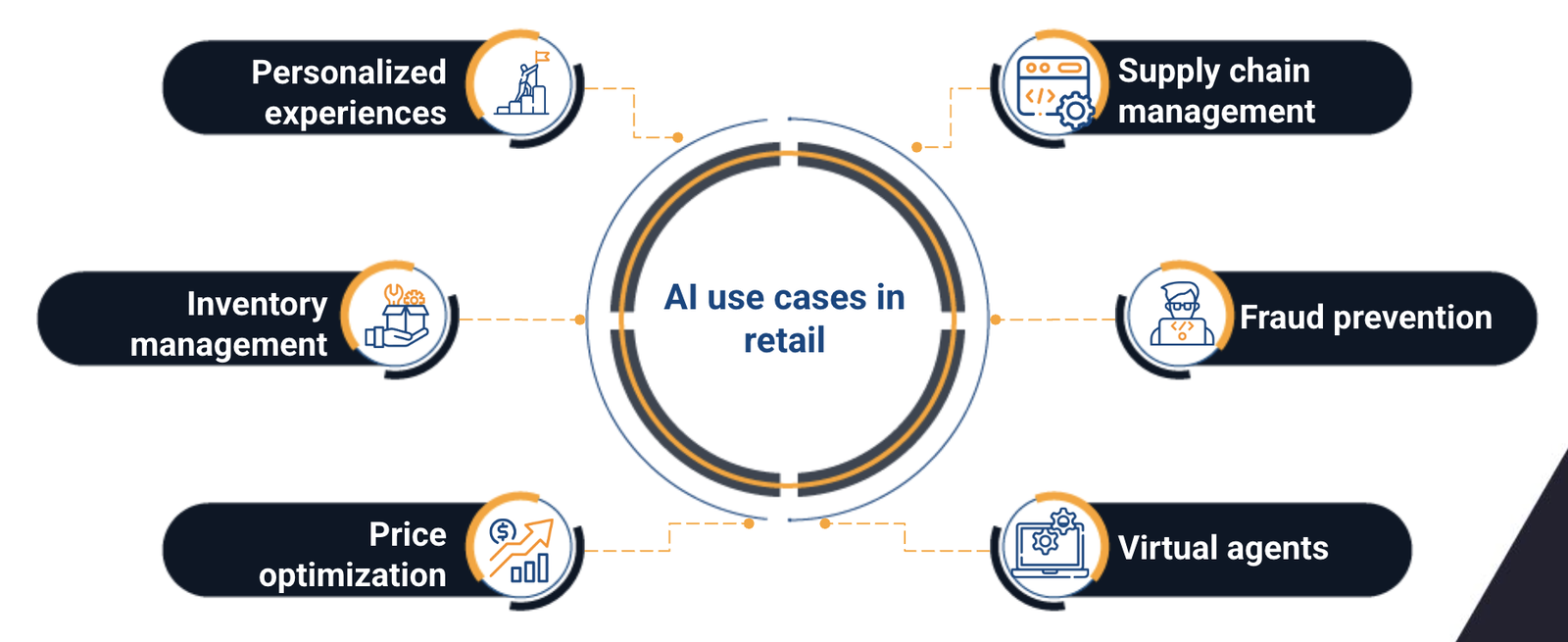
AI use cases in the retail industry
Table of contents
Quick Access

Retail is undergoing an unprecedented transformation thanks to artificial intelligence (AI). From automating logistics processes to personalizing the shopping experience, this technology has become a driver of efficiency and competitiveness.
According to IBM, artificial intelligence in retail could generate between $240 billion and $390 billion in economic value, although many executives still face the challenge of successfully implementing it.
Meanwhile, McKinsey notes that generative AI could increase industry margins by 1.2 to 1.9 percentage points, scaling the total value of the retail market from billions to trillions.
In this context, AI use cases in the retail industry show how companies can leverage this innovation to optimize operations, reduce costs, and improve the customer experience.

Artificial Intelligence in retail: A strategic tool
Artificial intelligence in retail is not only a technological trend, but a strategic pillar for competing in a highly demanding environment.
Thanks to its ability to analyze large volumes of data and generate actionable insights, AI helps make faster and more accurate decisions.
IBM highlights that AI can optimize the shopping experience from start to finish: from administrative processes and the supply chain, to fraud detection and the creation of hyper-personalized experiences.
Customer-Centric AI solutions for retail
One of the great contributions of AI solutions for retail is personalization. American Public University explains that AI algorithms analyze consumer purchase history, browsing habits, and preferences to offer unique recommendations.
Amazon is a leader in this field: its machine learning-based system suggests relevant products, increasing both customer satisfaction and sales.
This hyper-personalization capability makes artificial intelligence in retail an essential resource for building customer loyalty and improving conversion rates.

AI use cases in the retail industry
AI use cases in the retail industry are varied and cover virtually every stage of the value chain:
1. Personalized shopping experiences
AI recommends products and promotions based on customer interests, improving their experience and increasing the average purchase price.
2. Inventory management
According to SAP, predictive analytics enables highly accurate demand forecasting. This helps reduce out-of-stocks by up to 30% and inventory costs by 25%.
3. Price optimization
With AI-powered dynamic pricing, retailers adjust their prices in real time based on competition, demand, or purchasing behavior. This maximizes margins and fosters customer loyalty.
4.Supply chain management
AI automates repetitive processes and forecasts demand, ensuring a more efficient flow of products and reducing human errors.
5. Fraud prevention and security
Using detection algorithms, AI identifies patterns of suspicious behavior and helps prevent losses, protecting both businesses and consumers.
6. Virtual agents and customer service
Intelligent chatbots answer questions, manage orders, and offer 24/7 support, reducing costs and improving customer satisfaction.
These AI use cases in the retail industry show how the technology can directly impact operational efficiency and profitability, while transforming the customer experience.

Artificial Intelligence in retail and logistics automation
Logistics is one of the areas where AI solutions bring the most value to retail. By automating tasks such as product sorting or inventory management, companies reduce errors, speed up delivery times, and lower costs.
IBM emphasizes that AI helps forecast demand and optimize administrative processes, ensuring that products are available in the right place and at the right time. This is key to maintaining business continuity and meeting the expectations of the modern customer.
The future of AI use cases in the retail industry
The impact of AI on retail is just beginning. In the coming years, we will see the technology expand its reach into areas such as augmented reality in shopping, real-time analysis of in-store behavior, and the integration of intelligent voice assistants.
McKinsey warns that the combination of generative and non-generative AI will multiply the economic value of the sector, taking innovation to an unprecedented scale. AI use cases in the retail industry will continue to evolve, and those who adopt these solutions early will gain a competitive advantage that is difficult to match.

Conclusion
Artificial intelligence in retail is a strategic enabler that improves logistics, reduces costs, personalizes the customer experience, and optimizes key processes. Thanks to AI solutions for retail, retailers can anticipate demand, manage inventories more accurately, and offer unique shopping experiences.
AI use cases in the retail industry demonstrate that its impact is real, measurable, and strategic. Brands that successfully integrate these technologies will not only increase their profitability but will also be better prepared to compete in the future of retail.
At Rootstack, we support retail companies on their journey toward digital transformation with tailored AI solutions. Contact us!
We recommend you this video
Related blogs

AI applied to the optimization of operational processes in banking

MCP: Key to orchestrating AI agents in complex business processes

How AI is transforming business automation

How to plan your AI automation project with MCP

AI and machine learning in healthcare: A guide for executives
